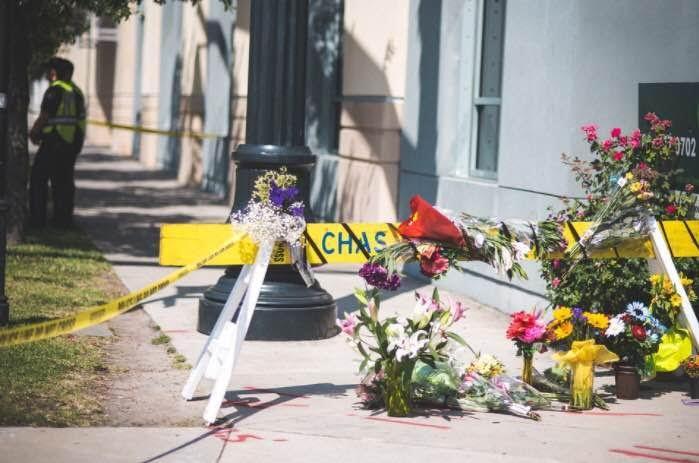On August 1, 1966 Charles Whitman climbed to the top of the University of Texas Tower. He was a husband, a son and a marine — and the first mass shooter in United States history. He shot randomly, killing 16 people, one of whom was my grandfather, Billy Paul Speed, a rookie cop responding to shots fired.
The outpouring around the nation was absolute. Hundreds of letters were sent to my grandmother, all from total strangers befit with grief and sympathy. I’ve read every single one. Some wrote short notes, some 10 page letters, and some, struck without words by such a tragedy, sent Hallmark cards. All of them say in some form that they would make sure that such a random act of violence would never affect people like my family again.
What happened Wednesday in Charleston was senseless, and I can tell you from experience that even 50 years from now the sharp pain of this tragedy will still not be understood. It can’t be understood. But we still have to learn from it, because it seems that the promise first made to my grandmother 50 years ago has not been kept — random acts of violence like this still happen, and with alarming regularity.
We need to learn why these shootings happen. Something went wrong with Dylann Roof’s life: mental illness may have gone unchecked, a culture of violence and racism may have affected a man from a broken home or a history of substance abuse may have beget violence.
We cannot be sure, but it leads me to say this: Dylann Roof is not a monster. He is human. And just because we cannot understand the factors that led him to kill those nine people Wednesday does not mean that we can take that away from him, because doing so lets us off the hook. It lets us feel that the Charleston shooting was an anomaly, perpetrated by something inhuman, as if it could never happen again. But it will, unless we can take serious steps to tackle mental illness and racism.
We are guilty ourselves of forgetting these issues, of wishing that they too, like Dylann Roof, did not exist. In our country mental illness is still considered an anomaly itself, even though almost 20 percent of American adults suffer from some form of mental illness each year, according to the National Institute of Mental Health. Just two months ago a police officer in Charleston was charged with the murder of an unarmed black man running away, but most of us would consider racism swept under the rug 50 years ago by the Civil Rights Act.
To accept Dylann Roof as human we must accept that we are equally capable of struggle and error — ours being that we have allowed a culture of racism, violence and disregard for mental health to create the people who we call monsters. There will always be that factor of irrationality that pushes them to target innocent victims, something so unreasonable that it is uncontrollable, but we can treat everything else by realizing that to stop mass shootings we need to change how we think about them.
For all the similarities I see between Dylann Roof and Charles Whitman, between the cities of Charleston and Austin, there is one disturbing difference. When Roof walked into that church in Charleston on Wednesday his victims weren’t random. He sat with them for an hour, hearing their prayers, their hopes for the community and their struggles — conversations about what it meant to be human. He took the time to know who he was killing and then silenced them. But if we cannot accept what happened in Charleston as something that was done by a human then we are taking away our own ability to talk about what it means to be one.
Spencer Davis is a finance junior and news reporter for The Battalion





















